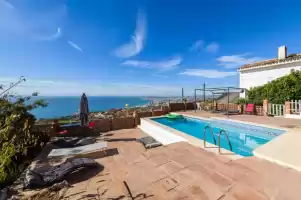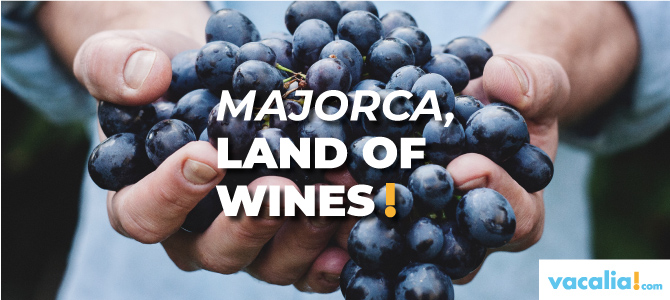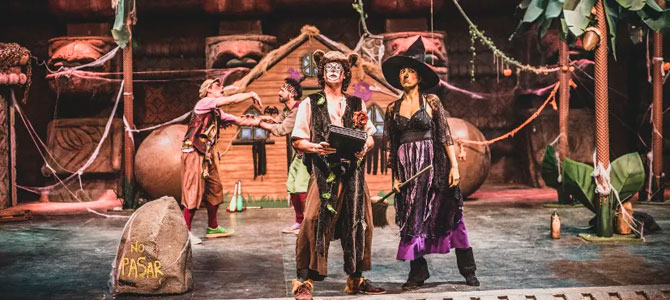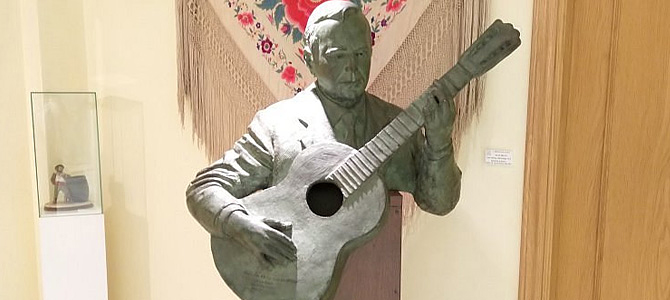The Malaga Carnival is one of the city’s most emblematic celebrations, a tradition that combines music, humour and creativity with strong citizen participation.
Located in the south of Spain and bathed by the warm waters of the Mediterranean, Malaga enjoys a mild winter that invites you to enjoy any outdoor activity to the fullest.
Carnival is usually celebrated in February or March, with the main events taking place on the weekend before Ash Wednesday. If you want to enjoy an exceptional stay, check our website for the best holiday rentals in Malaga.
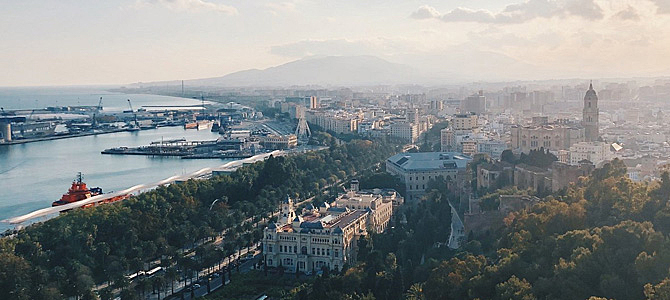
A historical tradition that is making a strong comeback
Carnival has its roots in the 19th century. It was in 1863 that the first coplas carnavalescas emerged, a characteristic popular expression that sets the Andalusian carnival apart from other carnivals around the world. These coplas, full of humour and social criticism, became a fun way for the people to express their opinions and thoughts. Since then, this tradition has constantly evolved, maintaining its essence, but adapting to the times.
Carnival, an eminently popular festival that precedes the Lenten season, is unique in Malaga for its multicultural, colourful and spontaneous character, with celebrations both in the historic centre and in the rest of the city’s neighbourhoods.
During Malaga’s warm winter, this event becomes a hive of fun activities that attract both locals and visitors, creating a unique atmosphere. Throughout the week, the streets are filled with art, culture and shows that guarantee an unforgettable experience.
Official Contest of Singing Groups (COAC)
This event, which is held in the emblematic Cervantes Theatre, is one of the jewels of Carnival. Murgas, comparsas, choirs and quartets compete to showcase their musical talent and keen sense of humour. It is worth noting that this competition attracts not only local groups, but also participants from other Andalusian provinces, broadening its scope and relevance.
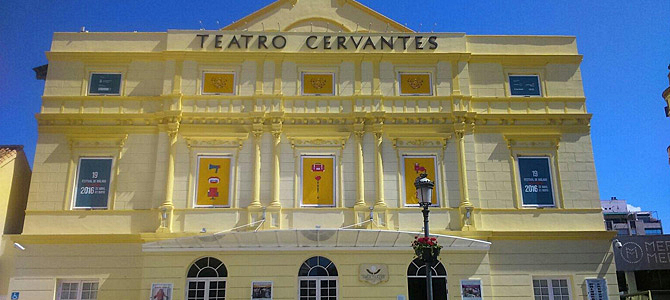
Election of the God Momo and the Goddess of Carnival
One of the most emblematic events is the election of the Dios Momo and Diosa del Carnaval, figures that symbolise the festive spirit of these celebrations. This contest is held annually in the Plaza de la Constitución, usually preceded by the proclamation that marks the official start of the carnival. During the gala, participants parade in elaborate and creative costumes, the result of the talent of local designers, and compete for the titles of Dios Momo and Diosa del Carnaval. The election of these figures is a highlight that reflects the cultural richness and passion of the Malaga community for its carnival.
Parades and Street Parades
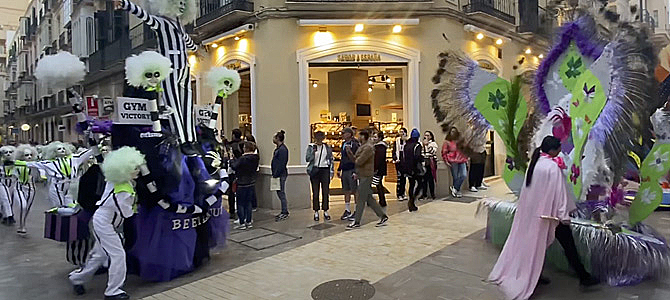
During the main days of Carnival, the centre of Malaga is filled with colourful parades involving floats, groups and costumed citizens. One of the most eagerly awaited moments is the Grand Parade, which runs through the main streets of the historic centre. This event includes the participation of troupes that have been working for months on elaborate costumes and their own choreographies. It is here that you can admire the creativity and effort of the local artists.
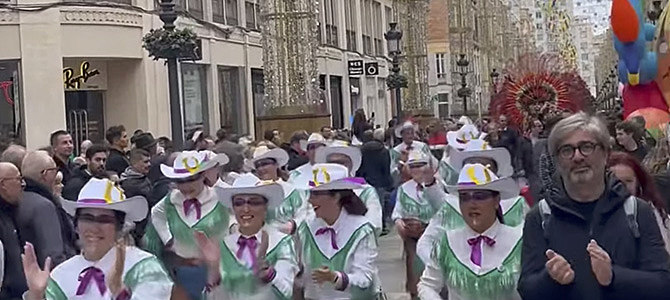
The Battle of Flowers
This event is a fun and visually stunning tradition in which participants throw flowers as they make their way through the city in a festive atmosphere. The Battle of Flowers is especially popular with families, as it allows for playful interaction between attendees and the decorated floats.
Award for the best costume in the Carnival Group Contest (COAC)
In the Official Singing Groups Competition (COAC) of the Malaga Carnival, as well as rewarding the best performances in categories such as comparsas, murgas and quartets, special recognition is given to the “Best Costume” or “Golden Needle”. This award highlights the creativity, originality and quality of the costumes presented by the participating groups. This award highlights the effort and dedication of the groups in the creation of costumes that complement and enrich their performances, adding value to the Malaga Carnival show.
Gastronomy in Malaga Carnival
Malaga’s gastronomy becomes an indispensable protagonist during Carnival, filling the streets with the traditional aromas and flavours that accompany the celebrations. Cabbage, stews, rice casseroles and sausages are some of the star dishes served at the popular tastings organised in the neighbourhoods, where the music of carnival songs completes the festive atmosphere. In addition, the emblematic anchovies and typical sweets such as “pestiños” and “borrachuelos” add a special touch to this fusion of culture and tradition, turning Carnival into an unforgettable culinary experience.
The Great Boqueroná
This is one of the most emblematic events of the Malaga Carnival, traditionally held in the Plaza de la Constitución. During this festivity, hundreds of kilos of boquerones en vinagre (anchovies in vinegar), a typical delicacy of Malaga’s gastronomy, are handed out free of charge, prepared and served by members of the Hermandad de la Alegría (Brotherhood of Joy). This popular tasting is usually accompanied by performances by murgas and comparsas, which add music to the festive atmosphere. The Gran Boqueroná not only celebrates the culinary richness of the region, but also reinforces the sense of community and tradition that characterises the Malaga Carnival.
The Burial of the Boquerón
The final touch to the Carnival takes place on the beach of La Malagueta with the symbolic “Burial of the Boquerón”. This peculiar rite, full of humour and symbolism, consists of the burning of a giant anchovy figure, representing the end of Carnival and the beginning of Lent. During this event, the beaches of Malaga are filled with people who bid farewell to the festival with music, dancing and a unique atmosphere by the sea.
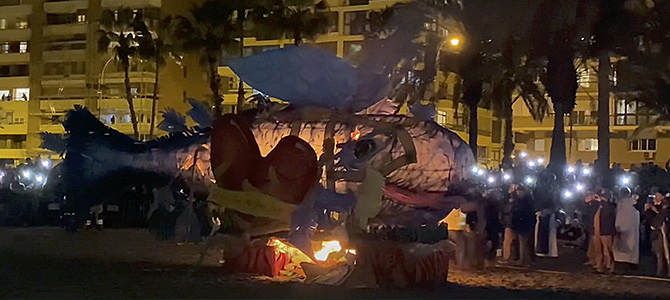
Thus Malaga’s “Warm Winter” comes to an end, giving way to the city’s big week, Holy Week, and a new season: spring, which brings with it renewed energy and the blossoming of new moments of celebration.


